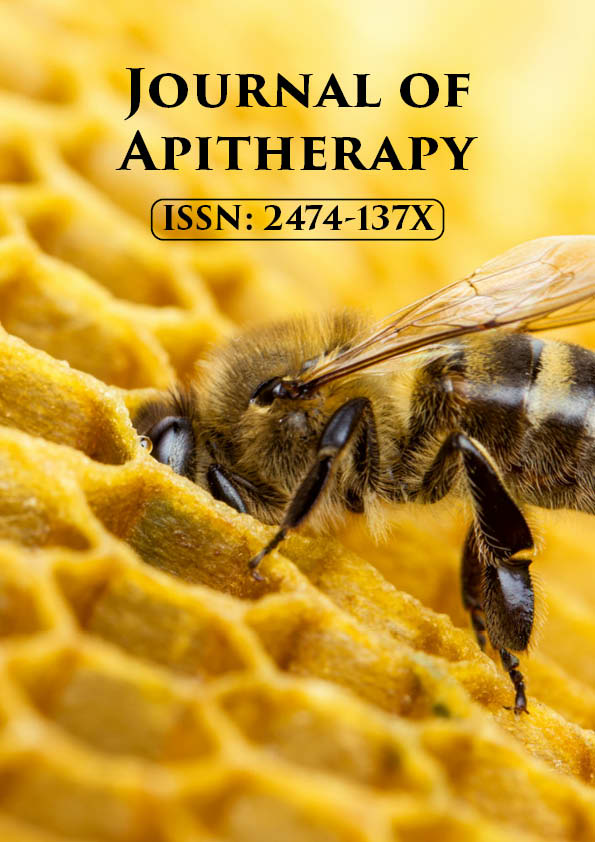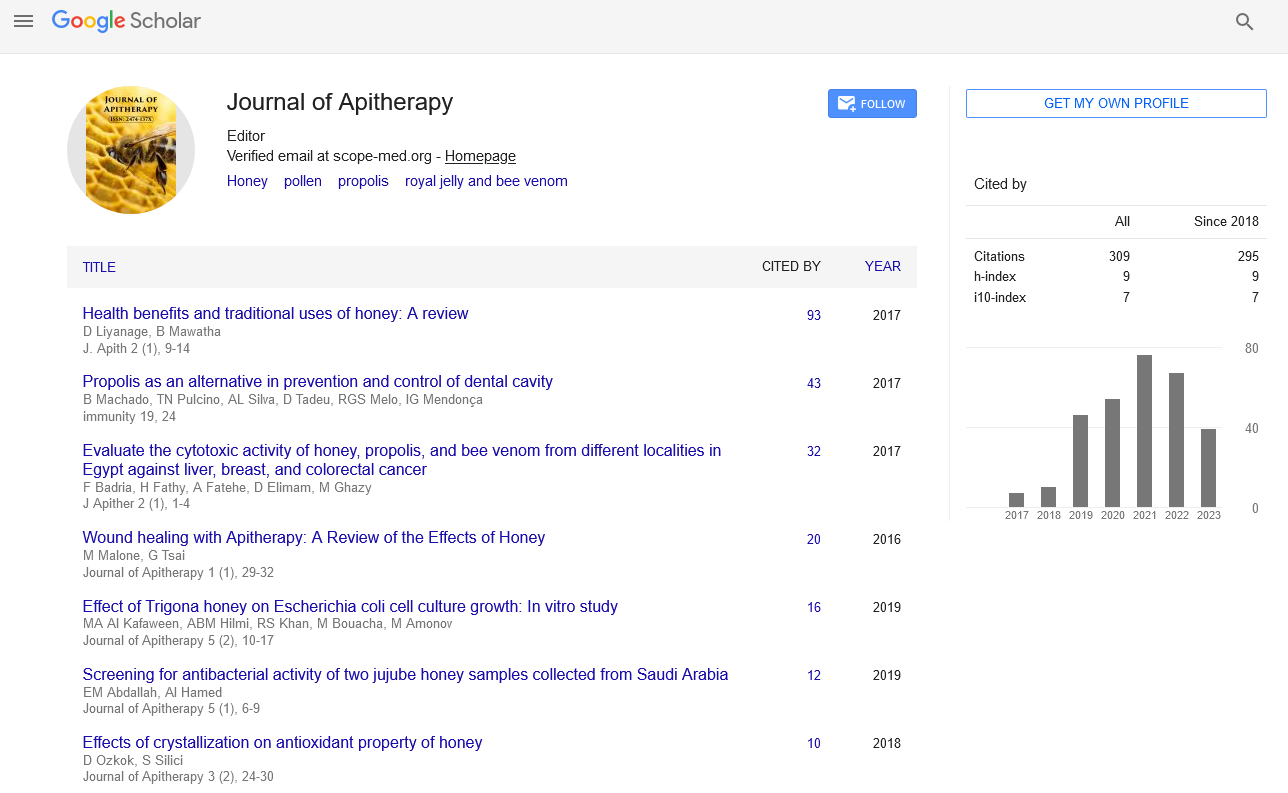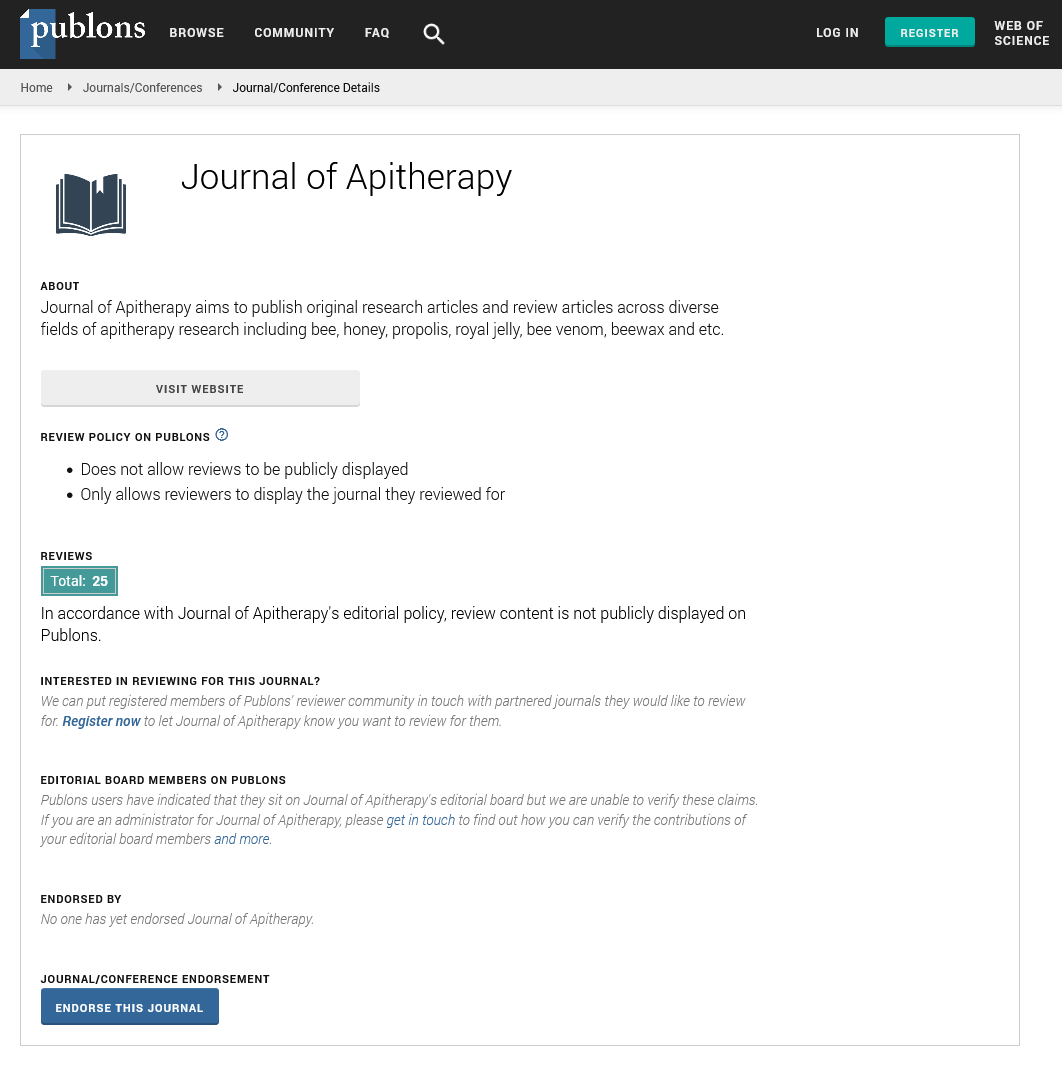Perspective - Journal of Apitherapy (2023)
Apitherapy: The Potential Role in Managing Autoimmune Diseases
Adrian Potvin*Adrian Potvin, Department of Agriculture, University of Helsinki, Helsinki, Finland, Email: Adrian@gamil.com
Received: 09-Sep-2023, Manuscript No. JAPITHERAPY-23-122286; Editor assigned: 11-Sep-2023, Pre QC No. JAPITHERAPY-23-122286 (PQ) ; Reviewed: 25-Sep-2023, QC No. JAPITHERAPY-23-122286; Revised: 02-Oct-2023, Manuscript No. JAPITHERAPY-23-122286 (R); Published: 09-Oct-2023
Description
Apitherapy, the medicinal use of bee products, has been practiced for centuries across various cultures. Among the plethora of natural substances derived from bees, honey, propolis, royal jelly, and bee venom stand out as therapeutic agents. In recent years, researchers have been exploring the potential of apitherapy in managing autoimmune diseases, a group of conditions where the immune system mistakenly attacks healthy cells. This article delves into the historical context, components of apitherapy, and emerging research on its application in autoimmune disease management.
Apitherapy and autoimmune diseases
Autoimmune diseases result from the immune system mistakenly attacking the body's own tissues. Conditions such as rheumatoid arthritis, lupus, and multiple sclerosis are characterized by chronic inflammation and tissue damage. The anti-inflammatory and immunomodulatory properties of bee products make them intriguing candidates for managing autoimmune diseases.
Rheumatoid Arthritis (RA): Rheumatoid arthritis is an autoimmune disorder affecting the joints. Research has shown that the anti-inflammatory effects of bee venom may help alleviate symptoms of RA. Bee venom therapy has been investigated for its potential to reduce joint pain, swelling, and inflammation in individuals with RA.
Lupus: Systemic Lupus Erythematosus (SLE) is a systemic autoimmune disease that can affect multiple organs. Studies have explored the immunomodulatory properties of bee venom and propolis in managing lupus symptoms. These bee products may help regulate the immune response and reduce the severity of lupus-related inflammation.
Multiple Sclerosis (MS): Multiple sclerosis is a neurological autoimmune disease characterized by damage to the protective covering of nerve fibers. Bee venom therapy has been investigated for its neuroprotective effects in MS. The potential to modulate the immune response and promote nerve regeneration makes bee venom a subject of interest in MS research.
Challenges and considerations: While the therapeutic potential of apitherapy in autoimmune diseases is promising, challenges and considerations must be acknowledged:
Standardization of bee products: The composition of bee products can vary based on factors such as bee species, geographical location, and environmental conditions. Standardizing these products for medical use poses a challenge.
Allergic reactions: Individuals with bee allergies must exercise caution, as exposure to bee products can trigger severe allergic reactions. Careful screening and monitoring are crucial before initiating apitherapy.
Apitherapy, rooted in ancient traditions and embraced by various cultures, presents a fascinating avenue for exploring alternative treatments for autoimmune diseases. The diverse range of bee products, from honey and propolis to royal jelly and bee venom, offers a rich source of bioactive compounds with potential therapeutic benefits. While research is ongoing, the integration of apitherapy into mainstream medicine for autoimmune disease management requires further validation through rigorous clinical trials. As science delves deeper into the intricate interactions between bee products and the immune system, the potential for novel and effective therapies continues to unfold, bringing hope to those grappling with the challenges of autoimmune diseases.
Apitherapy, the medicinal use of bee products, has emerged as a promising avenue for managing autoimmune diseases, offering a unique approach to support the body's immune system. The potential role of apitherapy in autoimmune diseases lies in the diverse array of compounds found in bee products such as honey, royal jelly, propolis, and bee venom. These substances exhibit anti-inflammatory, immunomodulatory, and antioxidant properties that may help regulate an overactive immune response characteristic of autoimmune disorders.
Honey, with its rich composition of enzymes, vitamins, and minerals, has been studied for its ability to reduce inflammation and promote tissue repair. Royal jelly, a secretion produced by worker bees, contains proteins and fatty acids that may contribute to immune system modulation. Propolis, a resinous substance bees collect from plants, exhibits antimicrobial and anti-inflammatory effects. Bee venom, while traditionally associated with painful stings, is being explored for its potential anti-inflammatory properties and ability to modulate the immune system.







